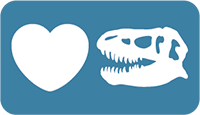In this issue:
- Director's Letter
A few words from the Director of the UCMP, Charles Marshall.
- Education and Outreach
What's new in Education and Outreach with Lisa White
- CalDay 2018!
CalDay 2018 celebrating Berkeley's 150th Birthday
- Faculty in the Spotlight
Seth Finnegan Tenure and New Grants
- Staff Updates
EPICC Update and Edmontasaurus
- What's new in the collections
San Francisco Public Utilities Commissions Updates.
- Student Honors
Commencement and beyond!
- Friends of UCMP
Thanks to the UCMP benefactors.
Director's Letter
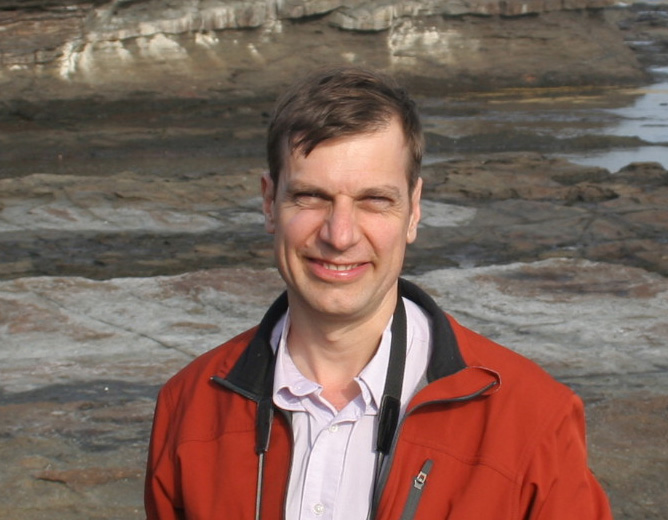
Securing UCMP’s long-term future
I have been Director of UCMP for eight and a half wonderful years. During this time my appreciation for UCMP has continued to deepen as I have better understood the impact UCMP curators, staff, graduates, and volunteers have had over the years. What an amazing place!
While my pride in UCMP has steadily increased, sadly, campus support for UCMP has steadily decreased, driven by Berkeley’s ongoing financial woes. Fortunately, very fortunately, thanks to your gifts, UCMP has been somewhat buffered from the rolling cuts of the last decade. Most recently, in no small part due to your letters and signatures earlier this year, the proposed campus cut for this fiscal year was reduced by half. Nonetheless, we are beyond being cut to the bone, unable to replace our retiring collections staff.
In the long run, UCMP’s future will hinge on the strength of our endowments. Annie Alexander recognized this, founding UCMP with a major endowment in 1921. Her endowment has since grown 50-fold and is now our largest single source of income. More recently established endowments, including the Welles, Gregory, Honorary Barnosky, and Berry Funds (thanks to all of you who initiated and supported these endowments), all but guarantee support for graduate and undergraduate student field work and research expenses in perpetuity. But that is not enough. We already rely on short-term grants to intermittently staff the fossil prep lab, and the cuts of the last four years have meant the loss of two museum scientist positions.
Simply, UCMP needs to increase its endowments, by ~$18 million to gain full financial independence at our current staffing levels. This is a lofty goal. However, since 2010, largely through gifts left in the estates of passing alumni, UCMP has increased its Main Endowment (FU0961000) by ~$2 million, with another ~$7 million in current pledges. So I believe the goal of ~$9 million still needed is achievable.
I would love to hear from you with your ideas, strategies, contacts, gifts and pledges, as we work towards securing the long-term future of this great, great institution. Please feel free to contact me anytime.
Yours in deepest appreciation,
Charles
Education and Outreach
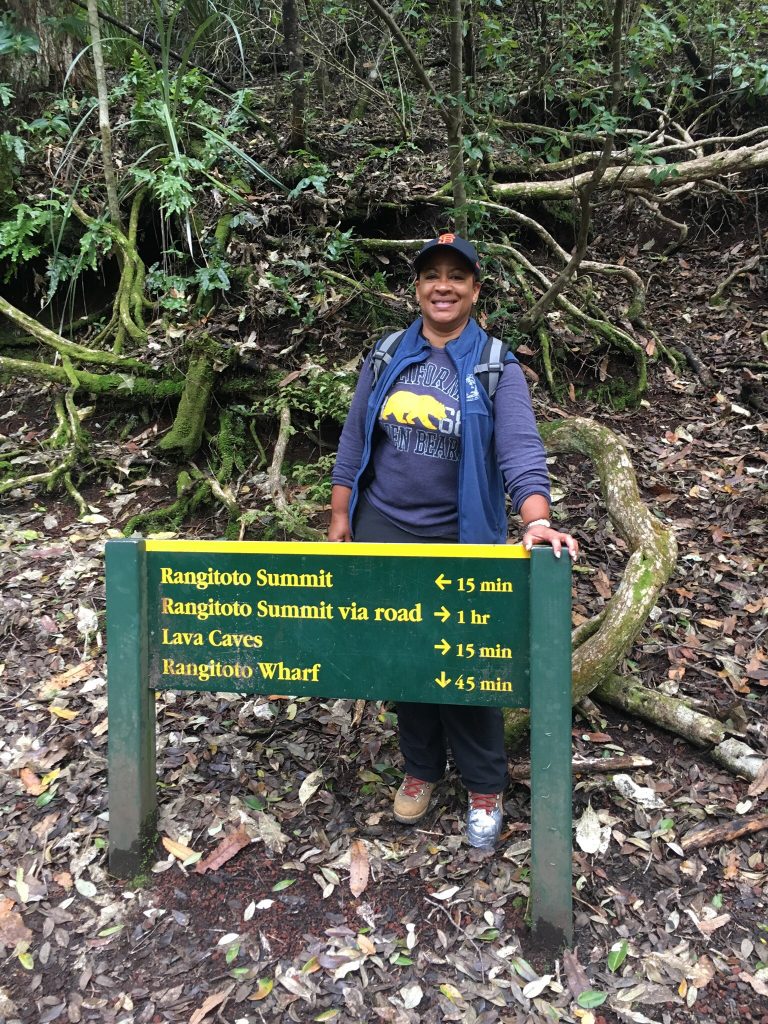
As I begin my 7th year as Assistant Director of Education and Public Programs at the UCMP, I’m happy to report that my efforts to reach more diverse audiences with UCMP educational resources are starting to bear fruit. As the UCMP increasingly relies on external funds to support education and outreach programs, four new and continuing NSF awards received over the past two years, totaling more than $450,000, establish new and unique institutional partners to serve a wider range of educators and students.
A-STEP (Ambassadors for STEM Training to Enhance Participation, NSF)
Target group: Underrepresented graduate students in STEM
This is a new three-year NSF collaborative grant with the International Ocean Discovery Program (IODP), Columbia and Stanford Universities, which expands the IODP School of Rock program that took place in New Zealand last summer. Underrepresented graduate students in STEM who want to strengthen their science communication skills can apply to sail on the JOIDES Resolution research vessel between major science expeditions. They will develop Earth systems science learning materials, using UCMP’s Understanding Science “How Science Works” flowchart, now available as an online interactive and journaling tool (see below). This is used to generate digital maps on the nature and process of science, IODP research and the student ambassadors’ newly acquired knowledge.
FIELD (Fieldwork Inspiring Expanded Leadership and Diversity, NSF)
Target Group: Early career faculty
Field research training entailed by undergraduate geoscience degree requirements is being increasingly shaped by demands to be more interdisciplinary, accessible, and inclusive. As a result of my participation in a 2016 NSF Ideas Lab on Geoscience Opportunities for Leadership in Diversity (GOLD), I am co-leading a unique field institute. Funded by a two-year collaborative grant from the NSF with five other universities, FIELD targets early career faculty who are hoping to transform field learning experiences in geology, paleontology and/or marine science in order to draw a greater diversity of participants.
BLUE Data (Biodiversity Literacy in Undergraduate Education – Data Initiative, NSF)
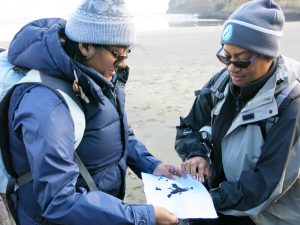
Target Group: Undergraduate students in biology
As museums seek to manage and mobilize an increasing amount of data, a new five-year NSF Research Coordination Network in Undergraduate Biology Education (RCN-UBE) called Biodiversity Literacy in Undergraduate Education – Data Initiative (BLUE Data) will make the data more accessible to students. The project is bringing together biodiversity, data, and education specialists from Central Michigan University and Florida State University to identify core biodiversity data competencies for undergraduates and integrate these competencies into introductory biology curricula. Natural history collections data are ever more relevant in biodiversity science and among the goals of BLUE Data are to develop strategies and exemplar learning materials, such as resources from UCMP’s Understanding Evolution website to increase the data literary skills across a broader community of undergraduates.
EPICC and the Kettleman Hills Collection (NSF)
Target Group: K-16 teachers and the public
The impacts of research collections at the UCMP are broadened by two NSF grants highlighted in previous newsletters – the EPICC (Eastern Pacific Invertebrate Communities of the Cenozoic) project and the transfer of the Kettleman Hills invertebrate collection from San Francisco State. EPICC – a partnership between the UCMP and eight natural history museums to digitize, photograph, and georeference more than a million specimens – shares the fossils and the field sites at which they were collected through virtual fieldwork experiences (VFEs). Together with colleagues at the Paleontological Research Institution we are using high-resolution images of outcrops, specimen photographs, and interactive maps of each site adding context and opportunities for public outreach. Fossils from the Kettleman Hills collected by students at San Francisco State and transferred to UCMP are among those featured in the first EPICC VFE.
Upcoming Web Resources in Education & Outreach
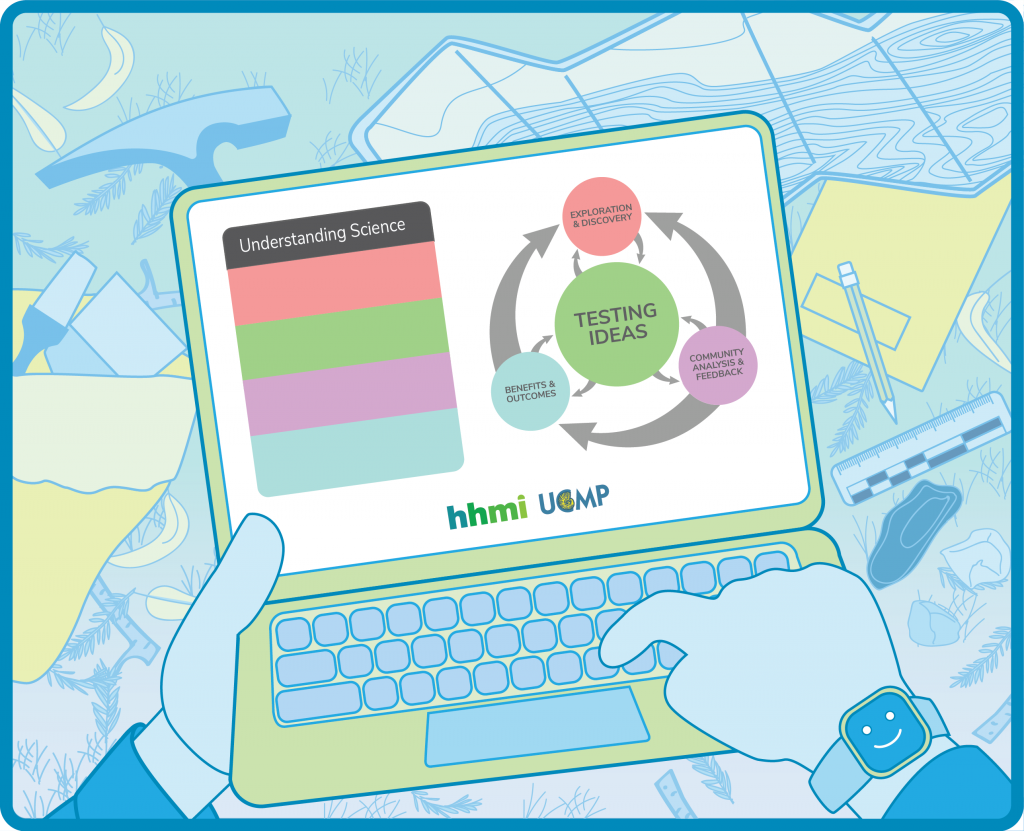
A new suite of online educational resources, tools and modules will be soon be available from the UCMP. In partnership with Howard Hughes Medical Institute (HHMI), UCMP has developed a new interactive version of the Understanding Science “How Science Works” Flowchart. This new web tool can be found at www.understandingscience.org. The UCMP Education and Outreach team is also working on a redesign of the UCMP website, www.ucmp.berkeley.edu, nearly 25 years after its initial launch. And finally, adding to our Understanding Evolution and Understanding Science web resources, the Understanding Global Change website and educational resources are in development. Check back with us soon for updates on this exciting new project.
CalDay 2018!
April 21st was a beautiful sunny day – perfect for CalDay 2018 – the annual campus open house event. This particular CalDay was special as the campus continued celebrating its sesquicentennial, the 150th anniversary of UC Berkeley’s founding. The campus and UCMP expected a fun, but busy, day.
UCMP provided a myriad of displays and events starting with both our life-sized cast of Tyrannosaurus rex and a human-sized version of T. rex (performed by graduate student Eric Holt) greeting our visitors as they entered the Valley Life Sciences Building (VLSB). At the T-shirt table, we featured new Harley’s Triceratops shirts based on the baby Triceratops found by Harley Garbani, friend and collaborator of UCMP’s Bill Clemens. We also had ginkgo fossil shirts illustrated by Dave Smith and buttons at the swag table.
Museum Tours and Fun with Fossils were as popular as ever and in the courtyard with other Berkeley Natural History Museums, we featured fossils under the theme of “Armor and Flight.” In the Fishbowl we displayed “Mega Mammals and their Mega Impacts.” Cristina Robins and her team presented fossil whale skulls from the ongoing SFPUC Calaveras Dam site. This collection was recently featured by several local Bay Area news outlets. Also featured were fossil mammoth teeth and fossilized sloth coprolites related to current research being conducted by graduate student Nick Spano in the Looy Lab.
Our lecture series this year focused on “New Directions in Science” and featured Adië Klompmaker, Finnegan lab post-doctoral scholar and graduate student Jeff Benca of the Looy Lab. Also of note, Assistant Director Lisa White and Professor Leslea Hlusko were featured on a Women in STEM panel called “Expanding Her Potential” hosted by local science communicator CaT Bobino. The panel provided a space for discussion about career paths for young women and their futures as scientists. And with that, CalDay came to an end. This UCMP tradition continues to provide fun and educational events to the campus and the Bay Area community at large. We can’t wait to see you next year!
Faculty in the Spotlight

Congratulations to newly-tenured Associate Professor/curator Seth Finnegan! Seth will be honored at the GSA Annual Meeting this fall with the 2018 Paleontological Society’s Charles Schuchert Award. The award honors an early career scientist whose paleontological work reflects excellence and quality, and is among the most prestigious awards an early career paleontologist can receive. Seth’s research on the fossil record of marine invertebrates is highly integrative, relying on field collections, geochemical observations, and statistical analyses to unravel the drivers of macroevolutionary change on a variety of timescales, from late Neoproterozoic to present day.
During a research visit to Paul Valentich-Scott and the Santa Barbara Museum of Natural History Carole Hickman discovered some important living and fossil mollusks in the collections. She was interviewed by Owen Duncan for a blog exploring her research, the nature of science and collections, and what happens behind the scenes in a natural history museum: http://www.sbnature.org/publications/blog/2/posts/50/sbnature-blog Hickman’s paper describing and illustrating UCMP fossils of a relict Mesozoic gastropod survivor in an Oregon subduction zone during the Paleocene-Eocene thermal maximum (PETM) appeared in April in PaleoBios (https://escholarship.org/uc/item/42b5m4kn).
UC Herbarium (UCH) curator Carl Rothfels, UCMP and UCH curator Cindy Looy, and two collaborators (Nathalie Nagalingum of the California Academy of Sciences, and Michael Sundue of the University of Vermont) have received funding
Staff Updates
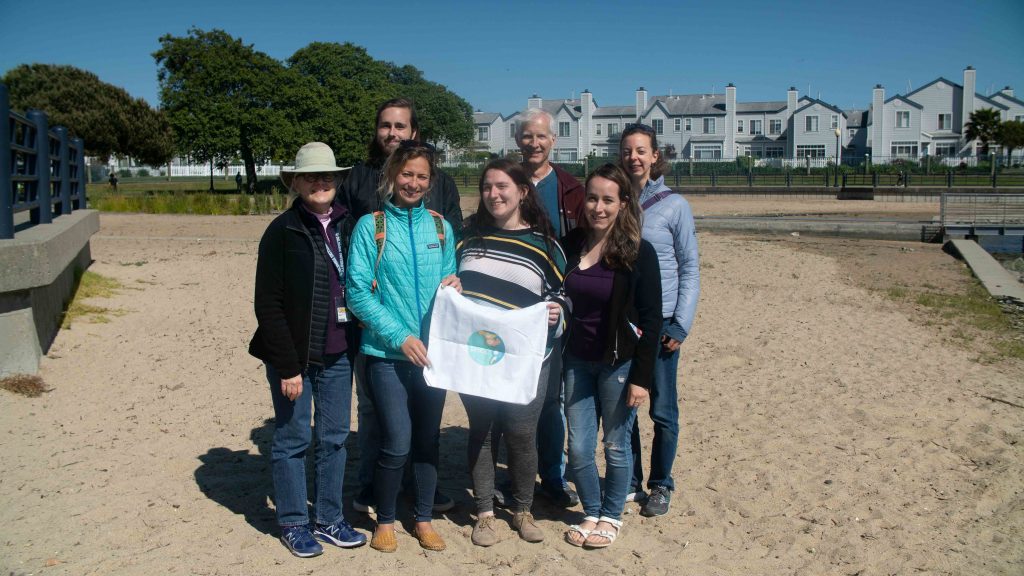
Senior Museum Scientist Erica Clites reports we reached an important milestone in our EPICC project by cataloging over 36,000 new specimens of Cenozoic marine invertebrates from the eastern Pacific! All specimen records are live in the UCMP database (ucmpdb.berkeley.edu) as well as at data aggregators like iDigBio (https://www.idigbio.org/portal/search). In March, the first Virtual Field Experience module was launched transporting teachers, students and anyone interested to the Kettleman Hills of Central California to explore the fossils, sedimentology and geology found there (https://epiccvfe.berkeley.edu/kettleman-hills). Several EPICC student employees are graduating this year and headed off to other adventures. EPICC project assistant, Lillian Pearson, has left UCMP to start graduate school at the University of Southern Mississippi this fall. The expertise and contributions of these student researchers to the project will be sorely missed, but we wish them well in their future endeavors!
Mark Goodwin co-authored a paper with Royal Ontario Museum colleague David Evans and his graduate student Mateusz Wosik on a nestling-sized skeleton of the duck-billed dinosaur, Edmontosaurus, which made the cover of the Journal of Vertebrate Paleontology. The skeleton represents the earliest ontogenetic stage of this hadrosaur skeleton and was discovered by Harley Garbani, a long-time field associate and friend of the UCMP. Harley sadly passed away in 2011 but his contributions to vertebrate paleontology and our collections from many summers of working with Bill Clemens and crews in Montana continue to impress and make a difference.
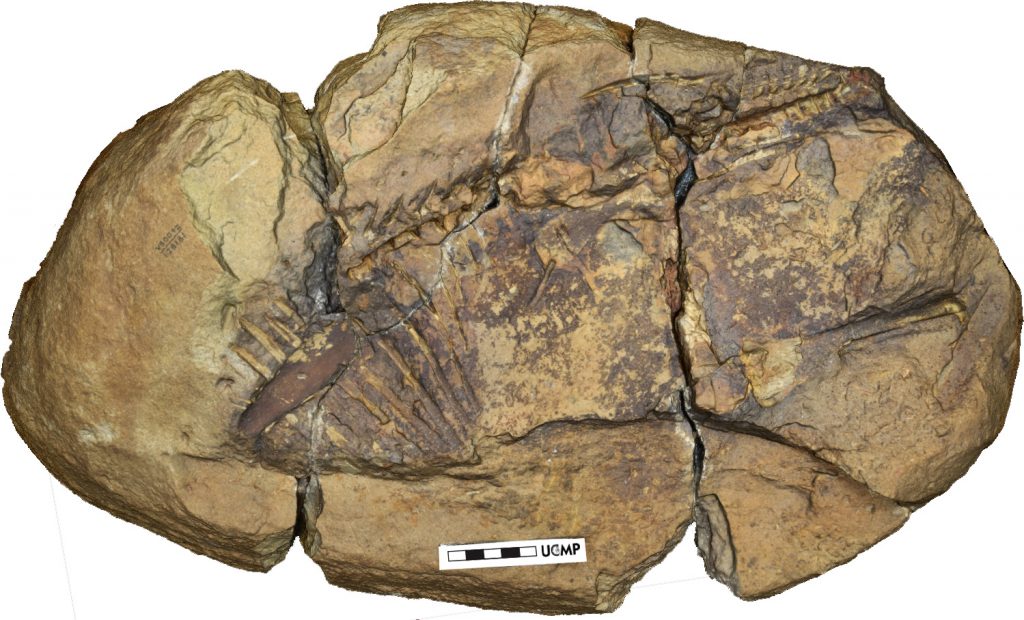
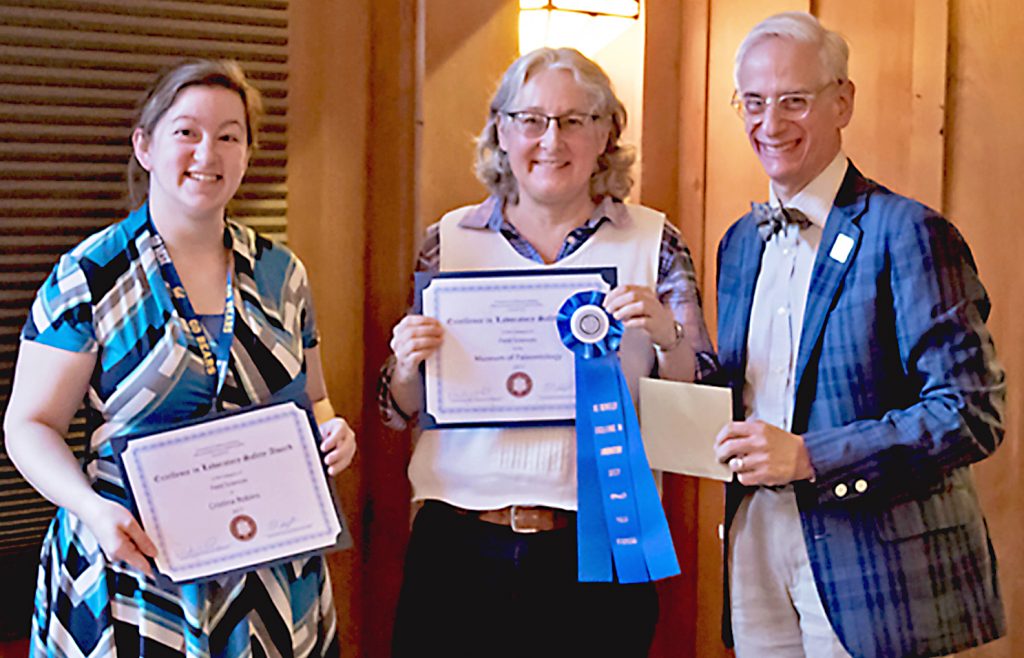
In February 2018, UCMP received the 2017 Excellence in Laboratory Safety Award for the large field sciences category given by the UC Berkeley campus’ Department of Environmental, Health, and Safety. UCMP lab managers Diane Erwin and Cristina Robins were honored to accept the award from Vice Chancellor of Research Randy Katz.
What's new in the collections
iDigBio Annual Conference at UC Berkeley
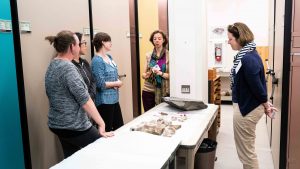
The Berkeley Natural History Museums hosted the second annual Digital Data in Biodiversity Research Conference (iDigBio Conference). Senior Museum Scientist Pat Holroyd was on the planning team with staff from the Museum of Vertebrate Zoology, which welcomed over 240 participants from around the globe, coming together to discuss how best to manage and utilize natural history data. Through the EPICC project, UCMP is a partner and data contributor. Lisa White hosted a pre-conference workshop on “Engaging K-12 Audiences with Biodiversity Data through Advancing Digitization for Biodiversity Collections.”
Thematic Collections Network grant awarded
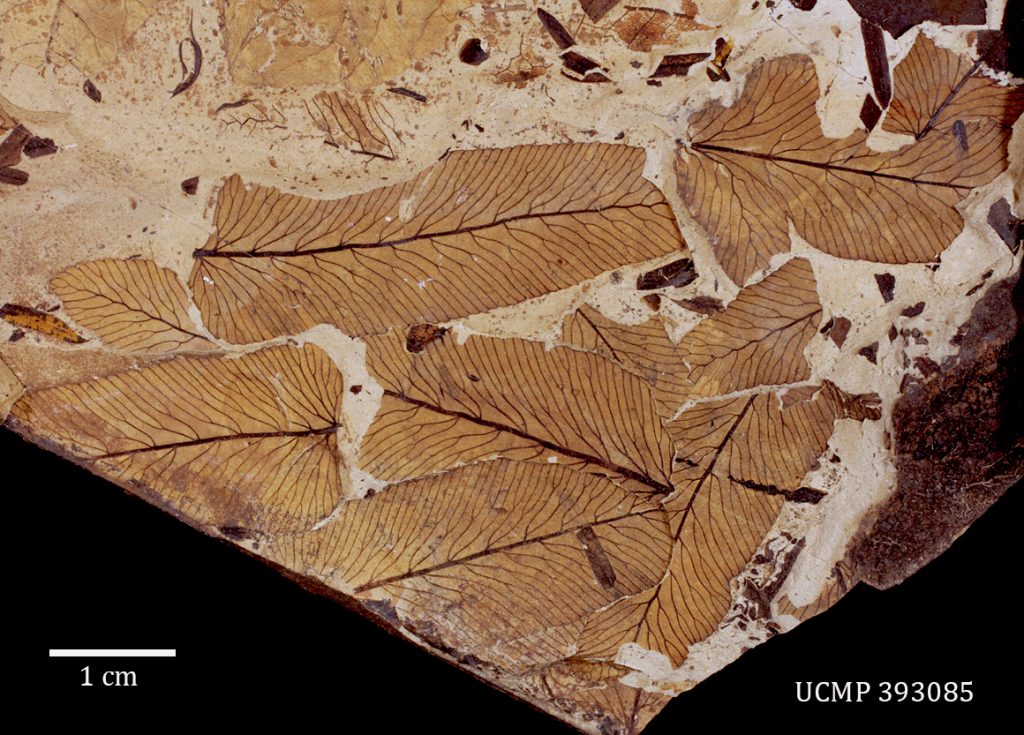
Carl Rothfels, Cindy Looy and Diane M. Erwin, will lead the UCMP’s and Jepson Herbaria’s collaboration with 33 museums and herbaria from around the country to digitize ~1.6 million pteridophyte specimens (ferns and other spore-bearing vascular plants) over the next three years. The Pteridological Collections Consortium (PCC) project is one of the latest to be funded by NSF’s “Advancing the Digitization of Biological Collections Thematic Collections Network” program (ADBC-TCN, NSF DBI-1802504). It will be the first such network to digitize fossils and extant natural history collections.
Calaveras Dam Updates
The prep lab and the Calaveras dam site project are now running at full speed and the fossils received in partnership with SFPUC are the most significant Bay Area fossils found in decades. Cristina Robins is supervising eight undergraduates, one graduate student, and one volunteer on this effort. Thus far, the team has discovered at least one new species of fossil baleen whale, over 20 other whale skulls in various states of preparation, and over 2,000 other fossil vertebrates, invertebrates, and paleobotanical specimens to sort, identify, prepare, accession, and catalog. It is quite an accomplishment as we mark the halfway point of the two-year project! The project has received a significant amount of press and after a front page feature in the San Jose Mercury News, a chain reaction of press stories followed during the spring semester. The Calaveras fossils and the UCMP prep lab have been featured on local news stations KPIX, KTVU, and NBC Bay Area and also received national coverage on CNN.
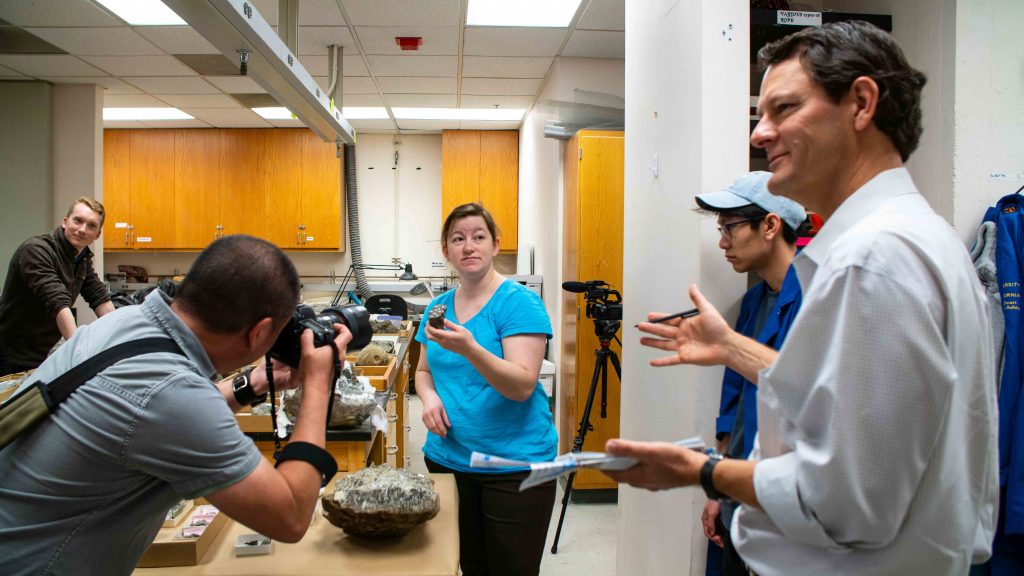
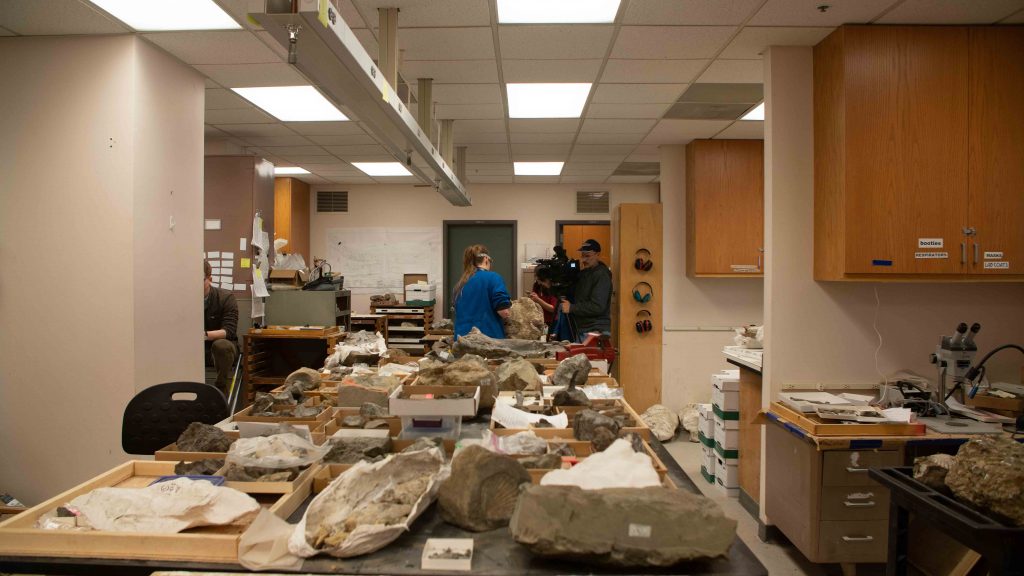
Student Honors
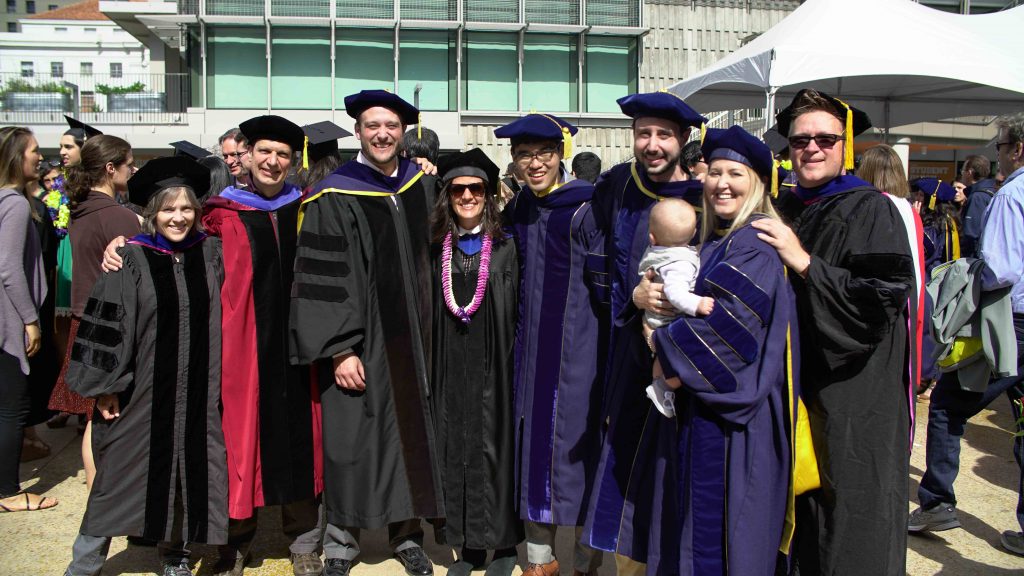
Congratulations to the UCMP graduate students who finished this spring: Jeff Benca, Dori Contreras, Dori Contreras, Ashley Poust, Rosemary Romero and Camila Souto. We wish you well in your adventures as post-docs, working with big tech companies and beyond!
Daniel de Latorre, Peter Kloess, and Renske Kirchholtes were honored with Outstanding Graduate Student Instructor Teaching Awards during the spring semester.
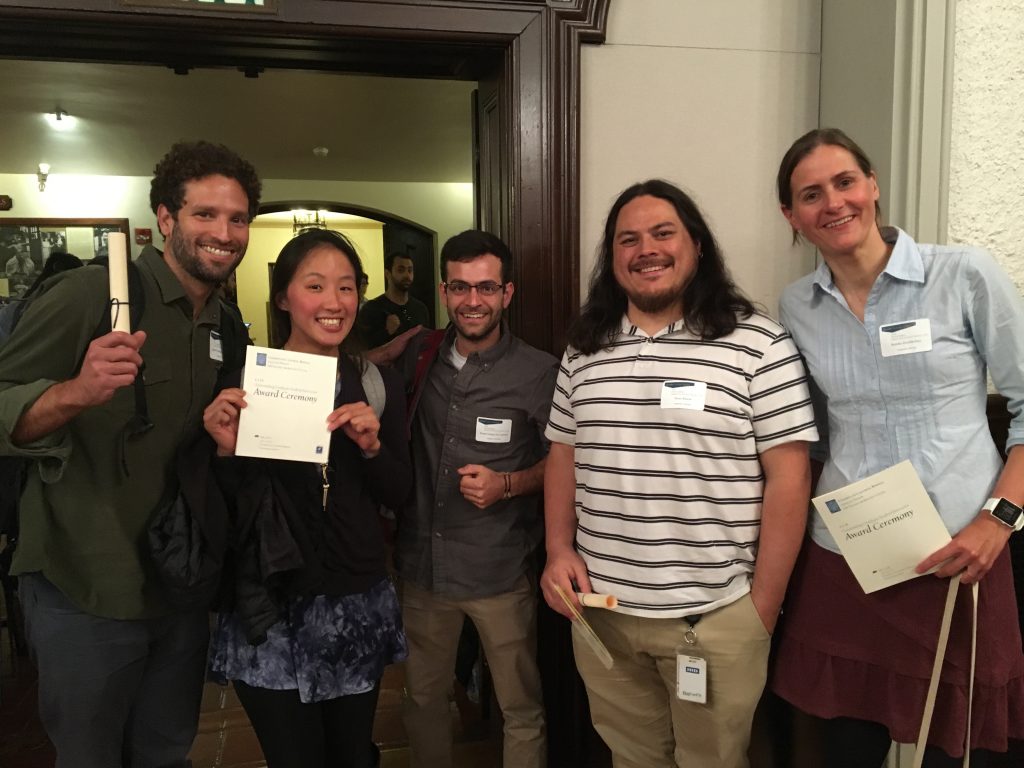
Sara ElShafie organized the “Science Through Narrative: Engaging Broad Audiences” Symposium at the January 2018 Society for Integrative and Comparative Biology Meeting. The symposium featured presenters from broad scientific fields and multiple disciplines in arts and entertainment. In March 2018, Sara ran a new public workshop, “Visual Storytelling for Science Communication,” with two collaborators from Pixar – Production Designer Steve Pilcher and Art Director Matt Nolte. The workshop drew an audience of over 250 and was sponsored by the CLEAR (Communication, Literacy and Education in Agricultural Research) and SLAM (Science Leadership and Management) programs at UC Berkeley.
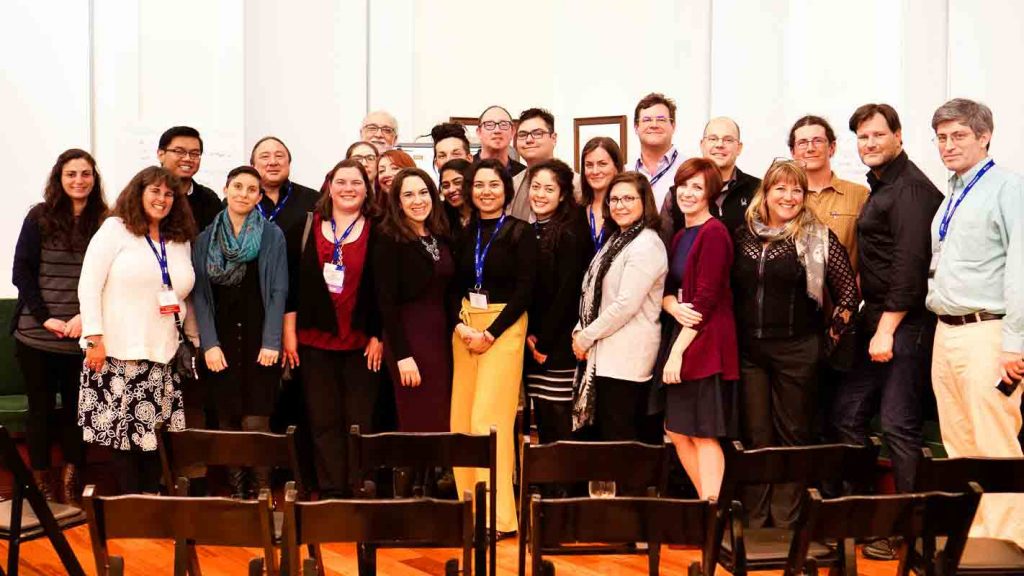
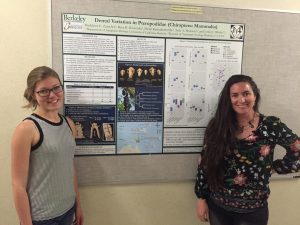
Tesla Monson accepted a postdoctoral position in the Department of Anthropology at the University of Zurich in Switzerland. Her project will use microCT-scanning to quantify the internal morphology of postcanine dentition with the aim of reconstructing human population movement in the Quaternary. During the spring semester Madeleine Zuercher, a student Tesla mentored in the Hlusko Lab, won Best Poster in Ecology and Evolution at the 2018 West Coast Biological Sciences Undergraduates Research Conference for her work on dental variation in megabats.
Looy Lab students Nick Spano and Ben Muddiman were each awarded a 2018 GSA Graduate Student Research Grant in support of their respective dissertation projects.
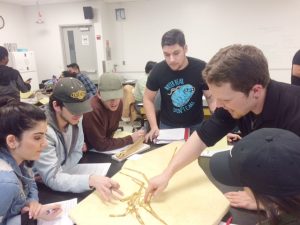
Congratulations to UCMP graduate student Larry Taylor who received a $2,500 grant from the Paleontological Society to make paleontology more accessible to community college students! During the 2018-19 academic year, Larry and UCMP graduate students will utilize a wide array of fossils to tailor workshops for specific community colleges and address the instructional needs of classes as expressed by the community college faculty. Larry piloted the program at Los Medaños College and City College of San Francisco last year.
Postdoctoral scholar Adiël Klompmaker worked with undergraduate students in the Finnegan Lab to collect and analyze Cenozoic decapod crustacean size variations and document evidence of predation in mollusks from both sides of the Isthmus of Panama.
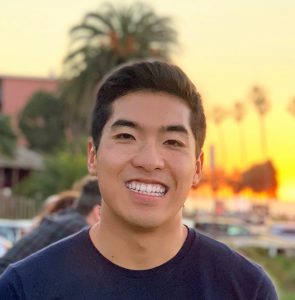
Congratulations also to undergraduate Hiep Nguyen (BA in Integrative Biology class of 2018) for receiving the Marian Diamond Award. This award recognizes students for their high academic achievement and leadership in research, teaching and community service. Hiep was selected, in part, for his outstanding contributions as a UCMP undergraduate research apprentice on the NSF-funded Berkeley Fossil Insect PEN project.
Friends of UCMP
We would like to welcome the following new or renwing members to our Friends of the UCMP
Benefactor
Maria Cranor *
Zhe-Xi Luo * & Sharon Feng
Jon Graff
Stephen & Barbara Morris
Sponsor
Ellen Essigmann
Don Pecko
Barry Roth*
Patron
Monica Albe
Sean Ford *
Jere Lipps
Jenny McGuire *
Carol Munson *
James & Harriet (Jo) Sanders
Lisa D. White *
Thomas J. White *
Sustaining
Merrick Bush-Pirkle
Blake Edgar
Robert Fenerac *
David K. Johnson
Donor
Ron Felzer*
Susumu Tomiya*
- * alumni

